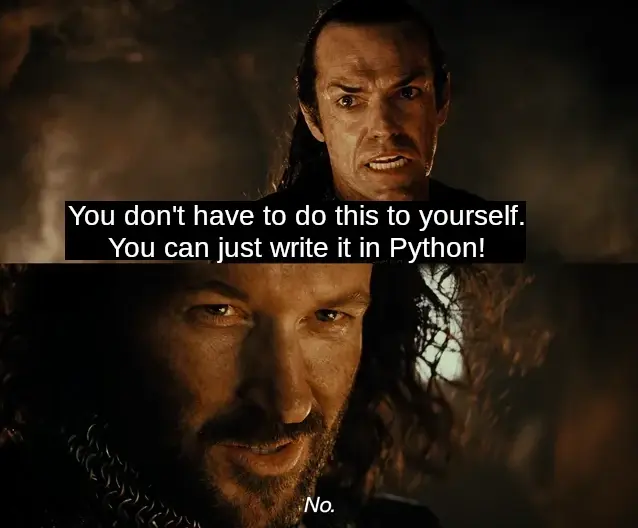D-Bus is a common mechanism for inter-process communication used on Linux. It allows applications and services to present a collection of properties and methods, as well as interact with the properties and methods of other process. It is used extensively by modern desktop environments. It is the canonical interface to interact with BlueZ, the main Bluetooth stack on Linux, as well as UPower.
D-Bus is implemented in C, and it provides libdbus - also implemented in C - to use it. But libdbus has little to no documentation. Just a light Doxygen reference of functions, structs, macros, etc. The main intoduction says explicitly, "This manual documents the low-level D-Bus C API. If you use this low-level API directly, you're signing up for some pain." Other pages on the freedesktop website recommends using other language bindings - like gdbus (which isn't a binding, but a re-implementation of the wire protocol), which has almost the same interface and even less documentation.
What the fuck are we even doing here? "Yeah this is dogshit, but it's okay because it's supposed to be used through a wrapper library which (for C) doesn't exist without various strings (gobject / qt / systemd) attached." I don't want a dependency on QT to dick around with BlueZ, and I sure as hell don't want to dive down the whole gobject rabbit hole just to write a program in C anyway.
I don't understand how such robust infrastructure gets built with this attitude. Clearly it still happens, so I must be missing something.



yeah, I used a python gtk library a long time ago and it was pretty baffling, but I was able to do what I wanted to do, with some effort. It's really frustrating that there's this miasmatic layer floating over the very solid base that is GNU/Linux, of byzantine poorly documented libraries and APIs and shit. You, as a programming literate superuser, want to tweak the behavior of some GNOME app on your ubuntu system? good fucking luck it'll take you all week. Makes me start to understand the people that insist on "suckless" (I think I'm using that word right) software that is simple and flexible and customizable from the ground up, tiling window managers, systemd alternatives, etc.
I don't know if I'm fully on board with "no systemd, no traditional/consolidated dwm, etc." but I like the idea of being able to customize shit better than just "live with whatever you get or learn GTK/Vala/whatever" (or hack around the bad behavior on the CLI I guess)